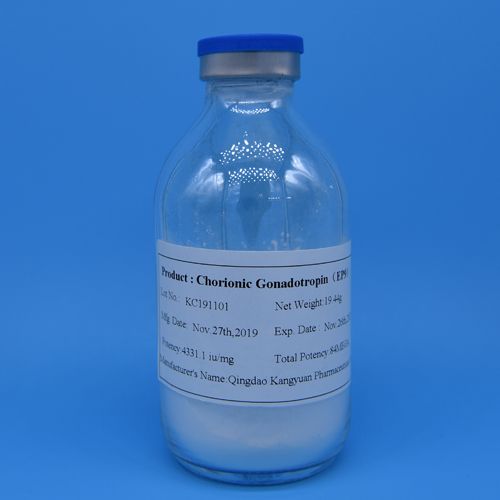Dilute the function of Human menopausal gonadotropin
HCG is a drug containing human chorionic gonadotropin. Among them, human
chorionic gonadotropin is a polypeptide hormone commonly found in women in early
pregnancy. It is synthesized by syncytiotrophoblast cells in the placenta and is
responsible for increasing the production of progesterone, a hormone that
maintains pregnancy. Chorionic gonadotropins are secreted in large quantities
only during pregnancy, so pregnancy can be detected with standard
over-the-counter pregnancy strips. Chorionic gonadotropin levels typically begin
to rise seven days after ovulation and peak two to three months into pregnancy.
Hormone levels then gradually drop back to where they were at birth.

Although THE follicle-stimulating hormone activity of HCG is weak, it is
similar to luteinizing hormone (LH) in physiological function. As a clinical
drug, HCG can be regarded as an exogenous LH. It is commonly used to promote
ovulation and pregnancy in women, especially those who are unable to ovulate
because of low gonadotropin levels. Since LH stimulates testicular stromal cells
to produce testosterone, HCG can also be used to treat hypogonadism in men, a
physiological disorder caused by low testosterone levels and insufficient
luteinizing hormone secretion. The drug is also used to treat prepubertal
cryptorchidism, in which one or both testicles do not descend into the scrotum.
HCG is also used by male athletes to increase endogenous testosterone
production, starting after steroid therapy ends or is discontinued.